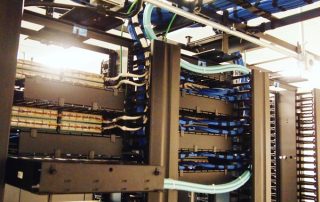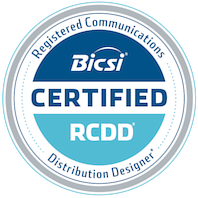Premise-based phone systems were the staple of all business communication for years. However, if you haven’t begun the switch to cloud-based phone systems, now’s the time to start, because premise-based services won’t be available for much longer. Panasonic has announced that its PBX system will be deactivated in 2023.
It’s understandable that your company may be reluctant to switch to a new phone system. That being said, there are many great benefits of switching to cloud-based systems. Here’s what you need to know about premise-based phone systems versus cloud-based phone systems for your business.
Why Premise-Based Systems Are Dying Out
Premise-based phone systems became very popular in the 1990s. These systems were loaded with features that allowed businesses to perform communication onsite, including the act of making, receiving, and transferring calls. Using these systems made it easier for businesses to communicate with customers and team members inside of the building.
Popular features of premise-based systems include automatic call lineup and routing. Calls are automatically placed in a queue and distributed to the predetermined route using a PBX system. The PBX host system is located in one location, storing all information in the building itself.
While these features and functions may seem essential, premised-based systems are becoming obsolete. Technology has advanced, making the system outdated. Automatic call lineup and routing are available via cloud-based technology, as well as additional impressive features. Newer systems have better capabilities, including working and accessing information offsite.
Market trends predict that cloud-based host systems will soon be the best, if not the only, phone system available. In fact, most premise-based systems will be deactivated within the next few years, encouraging customers to switch to hosted cloud-based systems.
The Benefits of Cloud-Based Systems
Cloud-based systems’ popularity is not without good reason. As we touched on earlier, there are plenty of benefits of switching to cloud-based systems.
Remote Communication Capabilities
COVID-19 lockdowns turned the business world on its head when many employees began working from home. Companies quickly had to learn how to accommodate remote working. Cloud-based host phone systems were the most obvious solution for communication while working remotely.
Cloud-based systems allow the user to make and receive phone calls from any location–not just physically in the business office. Workers are able to use these systems via their desktop phone in the office. They can also easily download a computer or phone application that enables them to communicate offsite.
Access to Info Offsite
In recent years, remote work has become increasingly popular. Cloud-based systems allow employees to access stored information while offsite. Everything, including contacts and call data, is stored in a cloud that is accessible in any location with WiFi. This makes it incredibly easy for calls to be monitored, information to be reported, and communication logs to be accessed without needing to be in a limited location. Your information is now available to you across the globe.
Fewer Expenses
With cloud-based systems, there are few extra components necessary to purchase, making it a much cheaper option. Cloud-based systems also require little maintenance and do not have complex physical components.
In contrast, all premise-based systems come with quite a few expenses. Besides having to purchase the system itself, companies would need to purchase the equipment necessary to actually operate. Handsets, routers, and proper training costed extra.
In addition to extra upfront expenses, premise-based systems require costly ongoing maintenance. Premise-based phone systems are comprised of wiring or an IP system. These components require regular maintenance and the costs can add up quickly.
Easier Setup
Cloud-based systems utilize a VoIP adapter and a strong broadband connection. The setup requires very little effort–just making sure that you have both of these purchased and properly set up.
Premise-based systems require much more setup and are notorious for difficult installation. Multiple components, including the physical PBX system, IP system, wiring, and desktop phones have to be installed and paid for. This setup takes quite a bit of time and money–much more than a cloud-based system.
Preferred By Customers
Premise-based phone systems are a rather basic communication line. Customers are able to call your company’s number and be directed to the correct person or office. This communication works but is not optimal for customer satisfaction.
Hosted cloud-based systems have the option to establish new ways for customers to communicate with the company. A “Chat with Us” function allows for an open line of communication online, where customers can connect with an employee without having to call. SMS text options are also available with a cloud system, which is another way that offers customer access to support. Cloud systems are much preferred by customers.
What Do I Do If I Currently Use a Premise-Based System?
Switching to a brand-new phone system can be intimidating, especially if your company has relied on a premise-based system for years. However, with the advancement in technology and the convenience of being able to work remotely, a cloud-based system is the best choice for the future of your business.
Luckily, since cloud-based systems do not require the installation of wires, IP systems, or other complicated physical components, installation is easy.
At Telco Data, the switch to a hosted cloud-based system only requires communicating with an expert agent. Schedule a consultation today, and we’ll give you a quote and tell you anything you need to know about making the switch.
Get in touch via our contact form or by calling 512-977-0505. Your new cloud-based system will increase customer satisfaction, make communication easier for your employees, and cut company costs!







